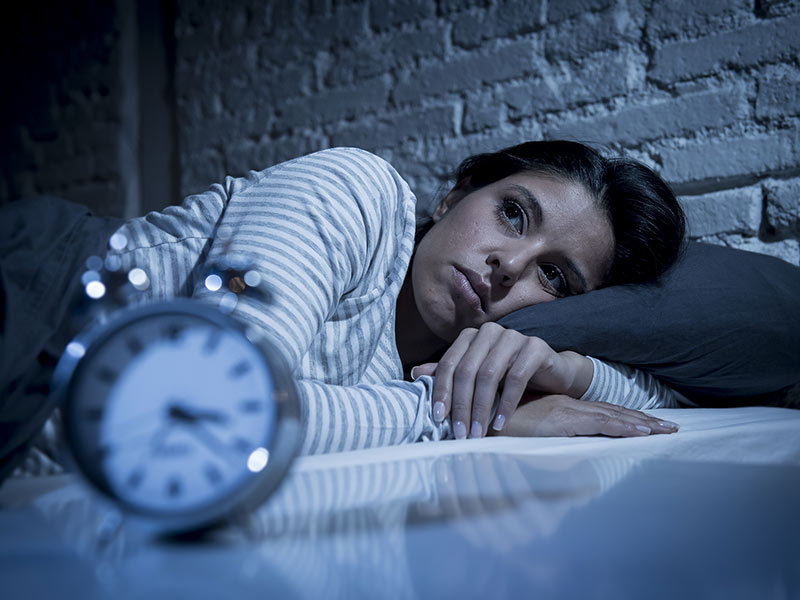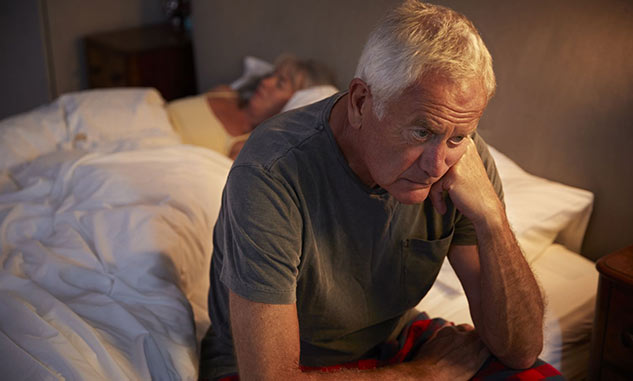
When did you last have a sleepless night? If it happens to you often then this may be symptom of depression. Want to know how, read this article. Sleep disorders and depression have been linked in a number of studies for its adverse effect on the health. Depression is more common than we think of it and thus even thew slightest symptoms must not be neglected. Over 70% of people that go through depression are not able to sleep well and therefore it leads them to sleep disorders. In a similar way, there is a possibility that sleep disorders might also lead you to depression. Let us look at the link between these diseases in detail.
Table of Content:-
Depression and Sleep Disorder Link
We spoke to expert Dr. Tanu Chowdhury, Clinical Psychologist at Lucknow to know about link between depression and sleep disorder. She told that depression and sleep problems are very closely related and can cause certain problems. Interestingly, they have a unique link, depression symptoms cause sleep disturbances and sleep disorders can lead a person to depression. There could be many effects of depression too.

How does depression cause sleep problems?
According to the expert, there has been a brief explanation around the link between this disorder. Actually, the symptoms of depressions cause sleep disturbances and it does not let the person sleep well. Or if it does, there is excessive sleep problems that effects his mental health. Here are some causes of depression due to sleep disorders-
Insomnia- It is a sleep disorder that makes it difficult for the person to stay asleep for a long period of time. This is one of the common disease that affects majority of people going through depression.
Hypersomnia- It is little opposite from what happens in insomnia. So here the person sleeps for excessive hours during the daytime and leads them to feel abnormal and this sleep disorder makes you feel sleepy even after you have had more than necessary sleep.
Also Read- 5 Best Breathing Techniques For Sound Sleep
How Sleep has effect on depression?
As far as effect of sleep is concerned, there have been many evidence that sleep issues such as insomnia may lead a person to depression symptoms and problems related to it. Sleep apnea causes symptoms of depression to occur because there is a strong correlation between obstructive sleep apnea and depression. National institute of health conducted a study on this in 2005 and then there was another review in 2009 that confirm the relation.

Ways to treat depression due to sleep disorders
If you have depression that has been caused because of sleep disorder such as insomnia, sleep apnea or hypersomnia, then following are the ways that can help to treat this issue. Depression symptoms at early diagnosis can be tackled through medications, therapies and lifestyle changes. Here is what you can do-
Medical ways to treat depression-
- Medicines that include anti-depressant like citalopram or fluoxetine can resolve these symptoms
- You can go to see a therapist or counsellor that deals with depression patients and mental health issues
- You can even get a cognitive behavioral therapy that can aid is easing emotions, feeling and behavioral problems that have been caused in the time of sleep problems
- Getting exposed to white light that helps to regulate your mood
- Herbal supplements recommended by dietician of therapist in order to relieve symptoms of depression.
Also Read- Can Viral Hepatitis Be Treated? Know From An Expert
Ways to treat Obstructive Sleep Apnea-
- Using a CPAP machine that provides you with positive airway that helps during this disorder
- Taking some sort of medicated nasal decongestant that could help you to elevate congestion and help in proper air flow
- Losing excess weight in the process to relieve pressure from your lungs or diaphragm
- UPPP method which is used in order to remove excess tissue from the back of the throat
Lifestyle Changes to Improve Sleep and Relieve Depression
- Eat a healthy and regular diet full of fruits and vegetables, whole grains, etc.
- Get at least 30 minutes of moderate exercise for yourself that could make you feel better such a going on walks, jogging or visit a gym
- Early to bed, early to rise, it works. Improve your sleep schedule
- Do not use electronic devices that 2 hours before the bed time
- Limit the online use of social media
- Try to meditate in the morning or in the free time. Clear your mind and thoughts
Picture Credits- shutterstock.com
Also watch this video
How we keep this article up to date:
We work with experts and keep a close eye on the latest in health and wellness. Whenever there is a new research or helpful information, we update our articles with accurate and useful advice.
Current Version

